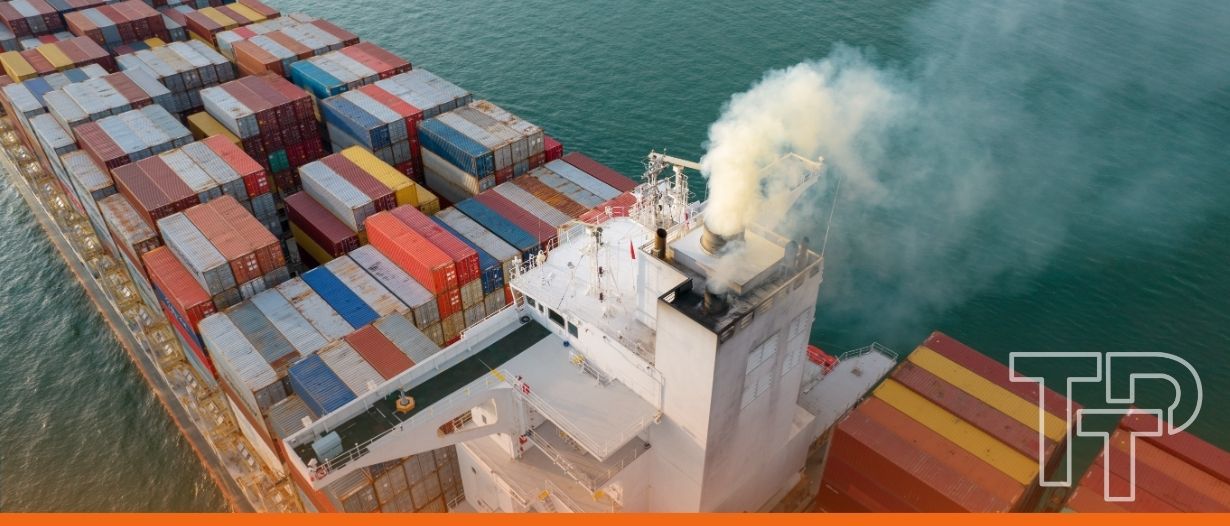VIDEO | BAFT CEO: Charting the course for transaction banking in a fractured world
Tod Burwell
Jun 06, 2025
 Deepesh Patel
Jun 05, 2025
Deepesh Patel
Jun 05, 2025

In a closely watched judgment for the trade finance community, Singapore’s Appellate Division has overturned a US$146 million damages award against Dr Goh Jin Hian, the former director of marine fuel trader Inter-Pacific Petroleum (IPP), and son of former Singapore Prime Minister Goh Coh Tong.
The court ruled that although Dr Goh breached his duty of care by failing to monitor a cargo trading scheme that led to massive losses, the company did not prove his lapse caused the loss, a vital causation gap that spared him from liability.
The judges also rejected a claim that Dr Goh breached his “creditor duty” to consider creditors’ interests, finding he had no knowledge or involvement in the fraudulent transactions and thus could not have prevented them.
IPP, an insolvent Singapore marine fuel (bunker) supplier, had two business lines: a traditional bunkering arm and a cargo trading division handling back-to-back fuel oil trades.
The latter became the centre of an alleged receivables fraud.
In mid-2019, IPP drew down about US$146 million from bank trade facilities (plus roughly US$10 million on bunker deals) over a few weeks, ostensibly to finance fuel cargo transactions.
The main lenders involved were Maybank and Société Générale, which had extended short-term trade finance facilities to IPP during the period in question.
Those deals turned out to be fictitious.
With each drawdown, IPP incurred debt to its banks based on fictitious cargo trades, creating mounting liabilities unsupported by real receivables or deliveries.
While the court did not characterise it this way, the structure bore the hallmarks of a receivables fraud, with funds raised on false trade flows and no incoming payments to match.
By August 2019, IPP could not repay its financiers about US$149 million, prompting judicial management and eventual liquidation.
Liquidators for IPP sued Dr Goh, who sat on IPP’s board from 2011 until resigning in August 2019, for failing to detect and stop the sham trade scheme.
In February 2024, a High Court judge agreed and initially held Dr Goh personally liable for the full US$146 million loss.
The court found that Dr Goh had “fallen asleep at the wheel” as a director, showing a “lack of knowledge” about IPP’s significant cargo trading arm.
At trial, IPP argued that several warning signs should have alerted Dr Goh to trouble, including an auditor’s 2018 confirmation request regarding a large receivable from Mercuria (over US$100 million) which he signed off on, the temporary suspension of IPP’s bunkering licence by the Maritime and Port Authority, and three written confirmations of IPP’s indebtedness to Maybank which he countersigned.
Justice Aedit Abdullah (at trial) agreed that these three red flags “should have raised alarm bells” and spurred inquiries.
In his view, a reasonable director would have investigated, uncovered the sham cargo trades, and prevented further drawdowns.
Because Dr Goh did not act, the judge concluded IPP’s losses flowed from his inaction. He held Dr Goh in breach of his duty of care and also in breach of his duty to consider creditors’ interests (since IPP was effectively insolvent during the drawdowns).
Damages of US$146,047,099 (plus interest) were awarded against Dr Goh to compensate IPP (now in liquidation).
Singapore’s Appellate Division has overturned the High Court’s decision that had held Dr Goh Jin Hian personally liable for US$146 million in losses at Inter-Pacific Petroleum (IPP).
The court agreed that Dr Goh breached his duty of care by being unaware of the company’s cargo trading business — a serious lapse for a director.
But crucially, no evidence was found that this failure caused the company’s losses.
The judges said negligence alone doesn’t make a director liable; the company must prove that the breach led directly to the loss.
In this case, IPP couldn’t show what Dr Goh should have done differently or how any action he took would have uncovered the fraud or stopped the drawdowns.
The court noted that even IPP’s external auditors missed the well-hidden fraud. It refused to assume that Dr Goh’s oversight would have changed the outcome.
The court also rejected the idea that three supposed “red flags”- an audit confirmation, a bunkering licence suspension, and Maybank debt confirmations- were enough to alert him to fraud.
None of these were clear signs of wrongdoing on their own, and a director is not expected to detect deep fraud without clear warning signs.
Separately, the appeal court dismissed the claim that Dr Goh had breached his duty to creditors; it only applies when a director knowingly approves transactions that put creditors at risk.
Since Dr Goh had no knowledge of the fraudulent cargo drawdowns authorised by others, he could not have breached that duty.
This ruling has sent a clear message across the trade finance and commodity trading sectors about director liability limits in trade fraud cases.
For banks, traders and insurers, the Goh Jin Hian case underscores that a director’s breach of duty must be causally linked to the loss for liability to attach.
It is not enough to show that a director was negligent or “asleep at the wheel” – plaintiffs must prove that, but for the director’s lapse, the loss would likely have been avoided.
This judgment recognises that even diligent directors have “practical and commercial limits” to their ability to detect fraud without obvious signs.
Dr Goh’s counsel Thio Shen Yi SC noted that the court acknowledged “the complex commercial realities that directors often operate in” and refused to make them guarantors of last resort for sophisticated scams.
Had there been clear red flags or evidence that prompt action by the board would have stopped the bleeding, the outcome may have been different.
The US$146 million IPP collapse, built on sham oil cargo trades financed by bank loans, highlights the ongoing challenge of detecting fraud in high-volume trade finance, even where standard controls and documentation are in place.
It also reinforces the value of transparent dealings and prompt escalation of anomalies for financial institutions and commodity traders. If critical information is withheld from directors (intentionally or by oversight), it becomes challenging to hold them accountable for ensuing losses.
Courts will carefully scrutinise causation and actual knowledge in such cases, ensuring that liability is “not vested on the director” for losses he had no realistic chance of preventing.
Correction: This article has been updated to clarify that the court did not describe the IPP transactions as “Ponzi-like,” nor did it attribute the company’s financial collapse to internal fund diversion. While the drawdowns were based on fictitious receivables, the judgment focused on director oversight and causation. We have also added that the primary lenders involved were Maybank and Société Générale.

Tod Burwell
Jun 06, 2025

Carter Hoffman
Jun 06, 2025
Trade Treasury Payments is the trading name of Trade & Transaction Finance Media Services Ltd (company number: 16228111), incorporated in England and Wales, at 34-35 Clarges St, London W1J 7EJ. TTP is registered as a Data Controller under the ICO: ZB882947. VAT Number: 485 4500 78.
© 2025 Trade Treasury Payments. All Rights Reserved.